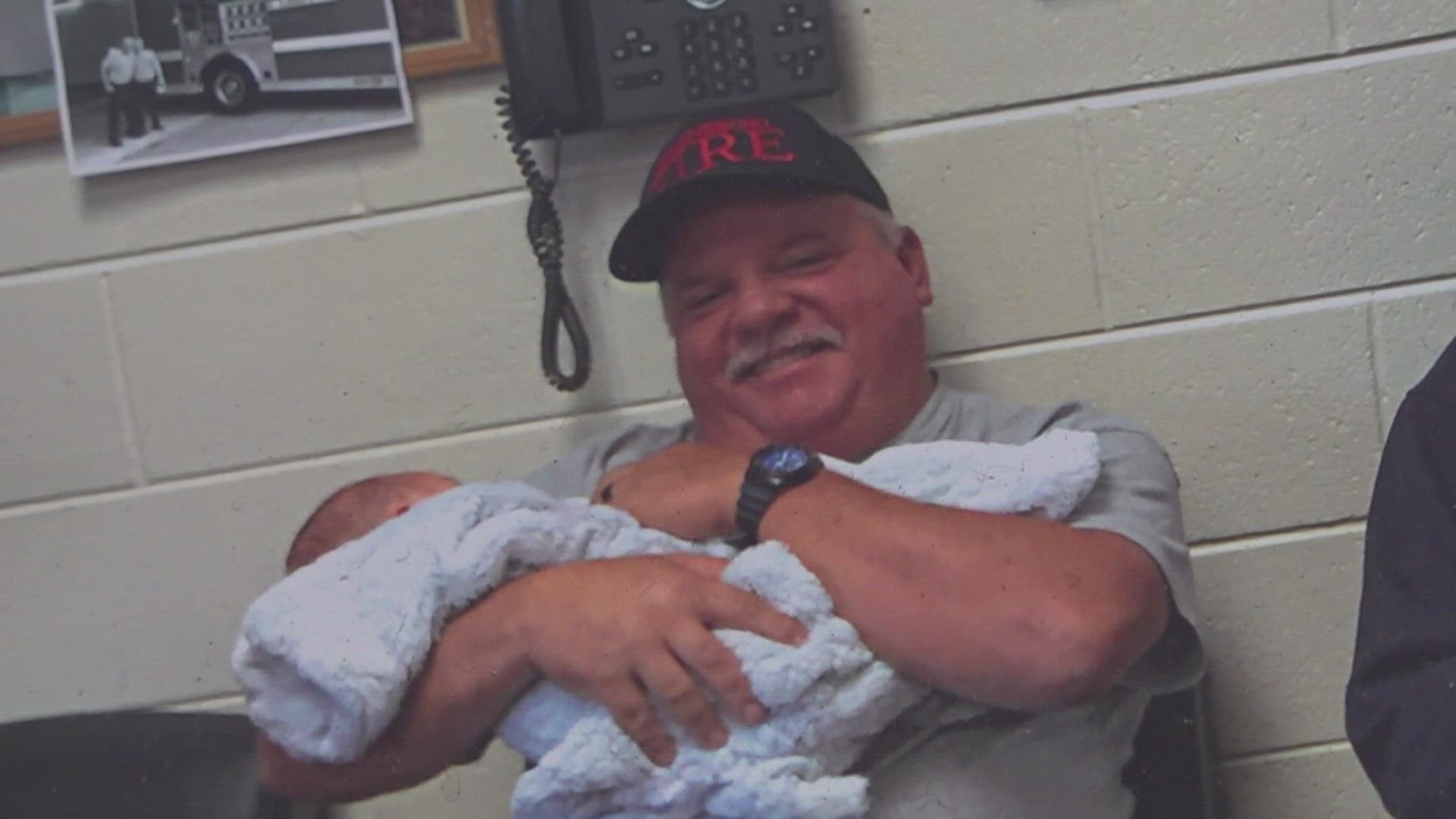GREENSBORO, N.C. — It's been a year since the Greensboro Fire Department lost one of their own. Robert Swink was a 26-year veteran of the fire department.
Swink started his career as a firefighter with the Guilford College Fire Department in 1996.
In 1999, Robert was promoted and earned the rank of Engineer and became an official member of the Greensboro Fire Department in 2001.
He worked as an Engineer on Air 1 for the last 10 years of his career. He was also a husband and father of three children ages 34, 31, and 27. Robert’s son followed in his footsteps and is a member of the Greensboro Fire Department working at Station 5.
Last year, on October 31st, he lost his battle with cancer.
It was declared an official line of duty death by the International Association for Fire Fighters (IAFF) in August.
The Greensboro Fire Department wants his legacy to be remembered, as they continue to find ways to protect firefighters from cancer.
Dave Coker is a fire captain for Greensboro Fire. He said he was good friends with Swink and they worked together at Station 1.
"Robert Swink was devoted to his family, he loved fishing, he loved a good glass of bourbon, he was serious the way he approached the job, but he always had a kind word, always was quick-witted, just a fun guy to be around," said Coker.
Coker said Swink was diagnosed with prostate cancer. Swink even came out of remission, but shortly after, he relapsed.
"When the cancer came back, it it moved quickly and metastasized very quickly, and he declined pretty quickly when he went back into the hospital," said Coker. "It was just profoundly sad, it was just a tremendous loss to our community, to our fire department to his family, it was it was crushing when he passed."
Swink's cancer was considered occupational cancer. This means the cancer was caused by repeated exposure to cancer-causing chemicals while on the job.
Coker said Swink is not the only firefighter who battled this.
"Today, occupational cancer is the number one killer of firefighters," said Coker. "It's not a building collapse, it's not being caught in the fire, it's not cardiac events like it used to be, the number one killer of firefighters is occupational cancer."
The Greensboro Fire Department has made progress over the years to limit firefighters' exposure to these chemicals.
Each firefighter has two sets of turnout gear and when one set gets dirty, there is a clean set for the next emergency.
The department also has showers on the scene for firefighters to hose off immediately after a fire.
"Over the years, we have worked really hard to try to address that," said Coker. "We've done a number of things within the department to mitigate our exposure. There's always going to be some exposure, but some of the things we've implemented in Greensboro is we have two sets of turnout gear, so when one gets dirty after a fire, you have a clean set to get into and you can launder the set that's dirty. We have a hood exchange program so our hoods, catch a lot of carcinogens through the byproducts of combustion, and we exchange that right on the scene. We have shower hookups on all of our engine companies, so you can do gross decon on the scene and then we're really looking at some more advanced screenings for cancers throughout the department, so there's been a lot that we've attempted to do to reduce our risk."
Coker said not only locally, but statewide changes have been made. He said while North Carolina was one of the last states to pass occupational cancer protections, now it is a pretty comprehensive list of protections that cover firefighters during treatment.
Also, Coker said that if you pass away from certain kinds of cancer, you are considered a line of duty death. This means men and women who gave their lives to the job get the proper honors.
"We've been very fortunate in the last few years in North Carolina to move some very good legislation to protect firefighters," said Coker. "When a firefighter dies in the line of duty if it's an act of fire death, it's very obvious they gave their life in the execution of their duties for their community, but with cancer, it doesn't work like that. It's not an acute instance. It's repeated exposure over a long period of time that is still job-related and so whether it's dying in a fire or you're dying as a result of going to a bunch of fires our personnel should receive those ceremonial honors that have been part of Fire Department tradition for 100 years."
While there are more protections in place, Coker said there is more to be done.
"The turnout gear we wear when we go in fires is treated with chemicals that are also cancer-causing and so that's one of the areas of improvement in the industry," he said. "It is really nothing that the fire department can do right now but in the industry, we need to be able to receive structural firefighting gear that does not have PFAS in it, so that's the next big step for firefighters in the country is to be pushing for options in turnout gear."
Coker said it's difficult losing his close friend, but he hopes his story will bring awareness to the challenge firefighters face every day.
"We have personnel pass away and they live on through the stories we tell around the kitchen table," he said. "There are pictures of Swink at station one, where he was assigned, and we keep the memory alive through sharing their stories and the good times together. Our hope moving forward is that we can reduce occupational cancers in the fire service so that families don't have to go through this loss, fire departments don't have to go through this loss."

